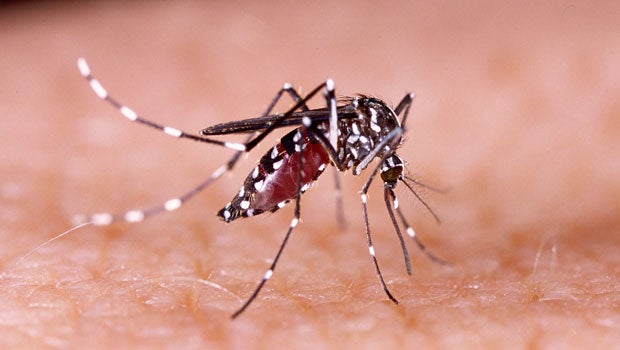
By Linette Lai
Singapore patients will play a key role in testing a new dengue vaccine, one which pharmaceutical giant Takeda hopes will put the brakes on the mosquito-borne disease which is endemic here and in many other countries worldwide.
The Japanese firm is conducting a trial of its vaccine at two public hospitals here, and is recruiting 400 people - both those who have and have not been infected. So far, at least 300 participants have signed up.
Through the phase 2 trial - which looks at the safety and efficacy of the vaccine, Takeda is hoping to see if the amount of antibodies a person produces against dengue differs if he is given a high dose of the vaccine, as compared to a regular dose.
The trial is being done at the Singapore General Hospital and Changi General Hospital. Participants, who must be between 21 and 45, will be given a single injection and asked to record symptoms potentially related to the vaccine. They will be followed up for a year after receiving the dose.
Among the handful of dengue vaccines currently being researched, Takeda's is a front runner.
The only existing dengue vaccine now is produced by French firm Sanofi-Pasteur, and was launched late last year. The Health Sciences Authority is evaluating its potential effectiveness in Singapore, and expects to make its decision within the year. Then Minister for the Environment and Water Resources Vivian Balakrishnan said in 2014 Sanofi's vaccine is "not good enough" for Singapore as it provides best protection against two strains of the virus that are less common here.
Dengue expert Tikki Pang, a visiting professor at the Lee Kuan Yew School of Public Policy at the National University of Singapore, said that the dengue virus is particularly complex to create a vaccine for, as it needs to target all four strains of the disease equally well.
"As a consequence of having to deal with four different types, the immune responses to these viruses are complex," he said.
More than 8,000 dengue cases and five deaths have been reported since the start of the year. However, the number of new dengue cases has fallen in the face of an all-out effort to stem the spread of the virus.
The authorities are also evaluating the potential impact of releasing male Aedes aegypti mosquitoes carrying the Wolbachia bacteria. When these mosquitoes mate with wild female mosquitoes, they produce eggs that do not hatch.
Associate Professor Lok Shee-Mei from Duke-NUS Medical School's emerging infectious diseases programme said an ideal dengue vaccine should help trigger antibodies to fight the virus as well as processes that kill dengue-infected cells.
A Takeda spokesman said that in existing trials, its vaccine had induced immune responses to all four strains of dengue after one or two doses, with no safety concerns observed in various age groups.
Source: The Straits Times, Singapore Press Holdings Limited. Reproduced with permission
Contributed by














 Get it on Google Play
Get it on Google Play